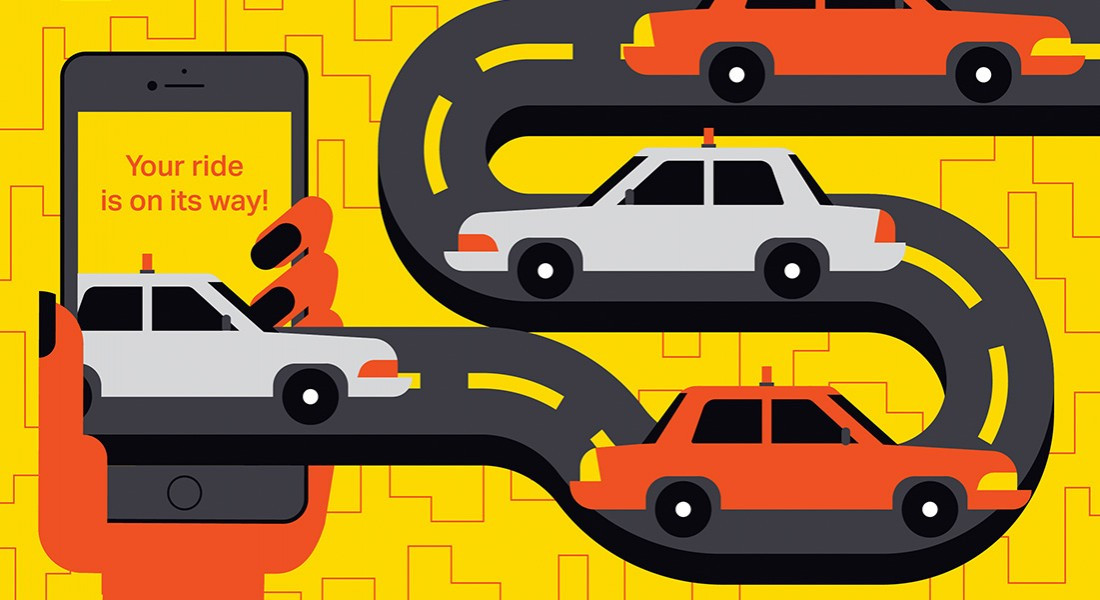Uber not a silver bullet for Winnipeg’s taxicab issues
Reforms of the industry a better approach
Many Winnipeggers are dissatisfied with the local taxicab industry and feel Uber and other similar companies are the answer.
Mayor Brian Bowman touched on this theme in his Feb. 24 State of the City Address.
“When I listen to Winnipeggers, they’re telling me we need to find a way to introduce ridesharing services like Uber. So I hear you, and I agree,” Bowman told speech attendees.
Enthusiasm among some residents for companies like Uber makes some sense, as there are serious problems with the taxicab system in Winnipeg.
A review of the system in Winnipeg, conducted by business consulting firm MNP for the Taxicab Board (the organization which regulates the Winnipeg taxicab industry), identified concerns of availability and safety, based on a survey of cab users.
Only 26 per cent of respondents felt there were enough taxis to meet demand. Winnipeg is average in the ratio of cabs to people compared to Canadian cities in winter, the busiest taxi season.
More alarming, however, are the safety concerns.
Only 45 per cent of Indigenous women felt safe in taxicabs according to the MNP survey, while interviews conducted by the consulting firm also reveal many Indigenous women say they have faced inappropriate behavior and harassment from drivers.
Information Winnipeg Metro obtained through a freedom of information request and published in January show that since 2013, there have been 39 reported cases where cab drivers were accused of indecent acts, sexual assault or suspicious activity.
Despite these issues, however, it is doubtful Uber is the answer.
Apples-to-apples safety comparisons between transportation network companies (TNCs) like Uber and conventional cab companies are hard to find. Nevertheless, an analysis of reported sexual assaults in TNCs and cabs in Austin, Texas found five against Uber drivers, two against Lyft drivers (another TNC) and three against cab drivers between April and August of 2015. This suggests TNCs are not particularly safer than cabs.
Whether Uber can even serve as a long-term alternative to cabs is doubtful.
An analysis of leaked investor reports for the entire Uber company by US-based transportation industry consultant Hubert Horan showed that in 2015, fares only covered 41 per cent of the cost of rides. Uber reported global losses of $1.27 billion in the first half of 2016. Uber’s low fares may end up just being a temporary undercutting measure to dominate local markets.
The MNP review recommends allowing TNCs into the Winnipeg market, so long as they follow similar safety and licensing standards as taxicabs. This recommendation from the review may be workable, if you add workplace protections standard cab companies have to abide by for fairness. Efforts to reform the cab industry, however, hold more promise.
Increasing the supply of licensed cabs would be the most direct route to solving supply issues, as is recommended in the review.
The Social Planning Council of Winnipeg and the Southern Chiefs Organization have been in discussion with representatives of the Winnipeg cab industry on ways to improve safety. A key theme that emerges is requiring cultural competency training. Given that Indigenous women particularly feel unsafe in cabs and survey interviews by MNP suggest Indigenous cab users experience discrimination and stereotyping by their drivers, this approach holds promise.
Recommendations in the MNP review, like streamlining the Taxicab Board complaints process and better monitoring of video data from cabs could help address safety issues.
Published in Volume 71, Number 24 of The Uniter (March 16, 2017)








